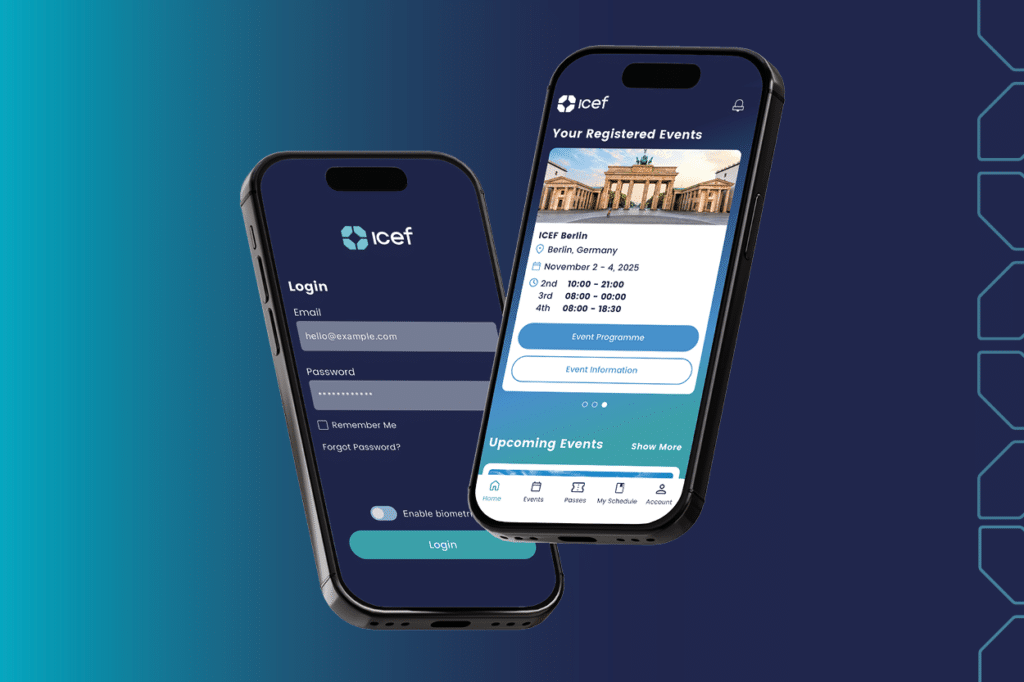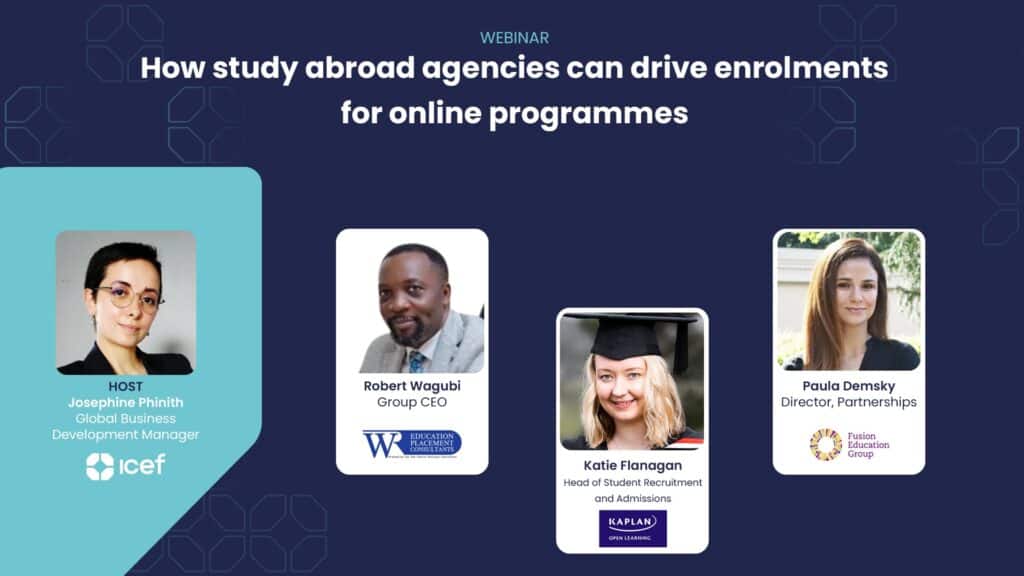Event programme & webinars
ICEF Student Recruitment for Online Programmes is a 3-day virtual networking event that allows you to build a personalised schedule of up to 50 one-to-one meetings with existing and potential partners, all of which take place on the 2nd and 3rd days of the event.
Additionally, on day 1 you have exclusive access to a series of interactive live webinars and online panel discussions, featuring up-to-date information on the latest market trends, issues, and opportunities currently affecting the international education and online learning sectors.

















